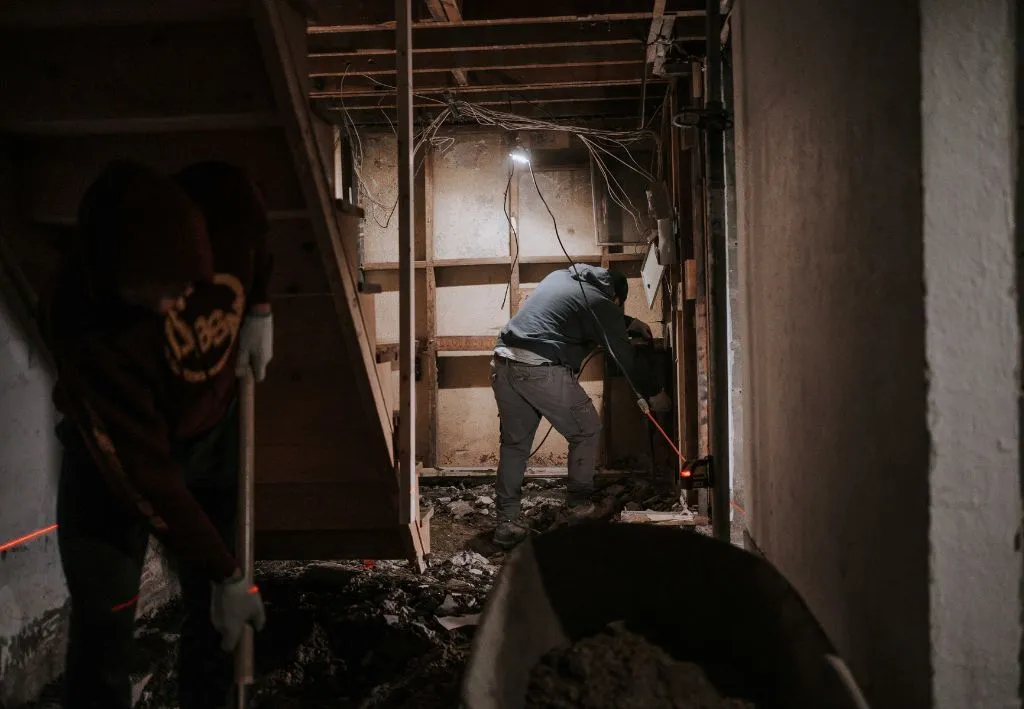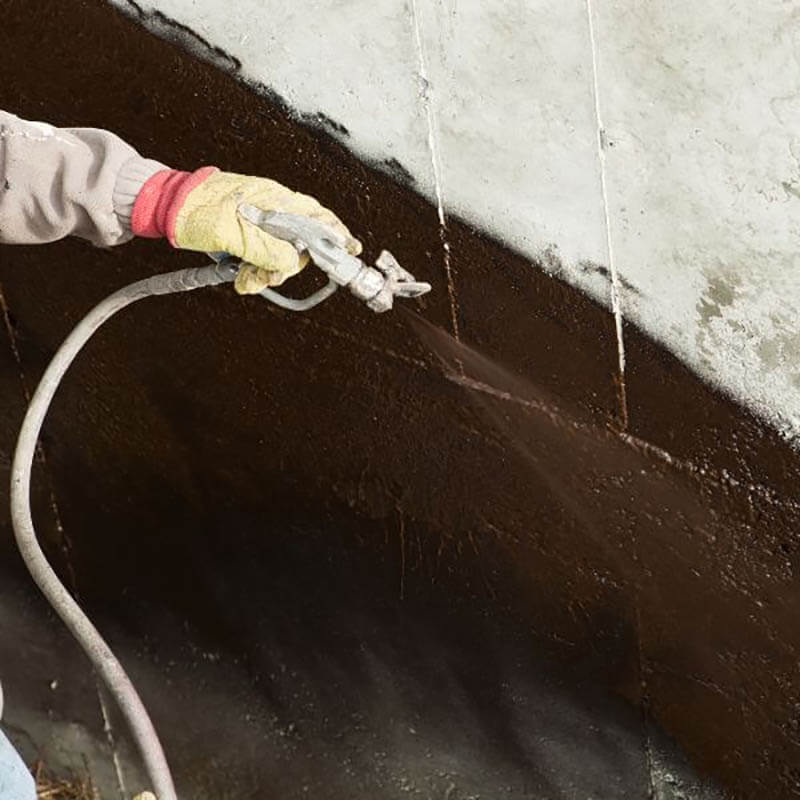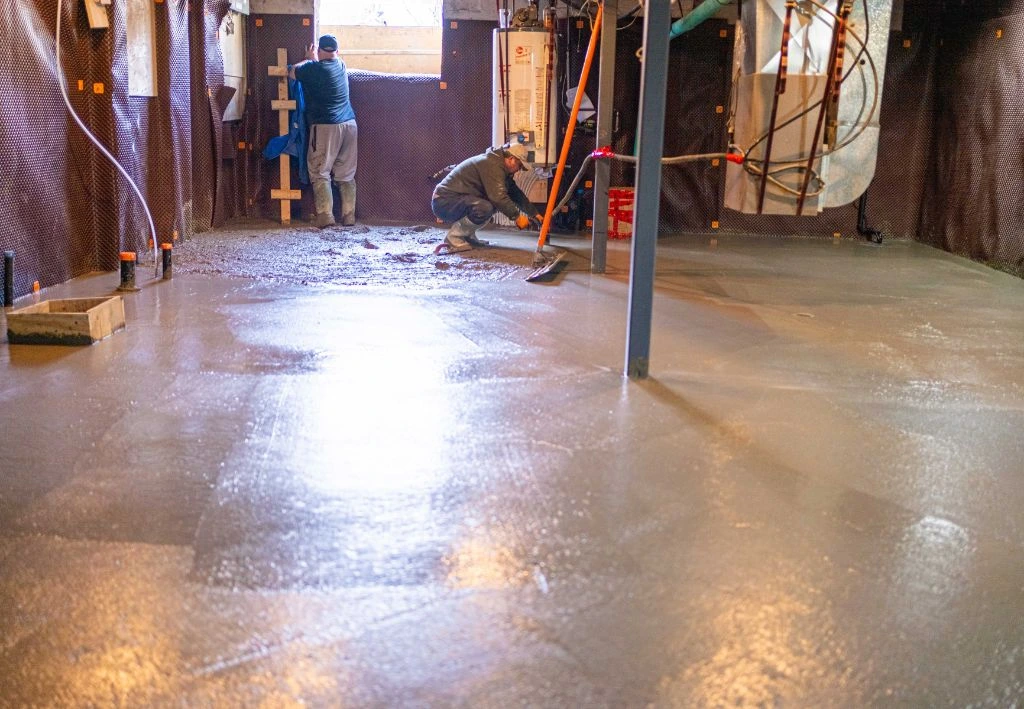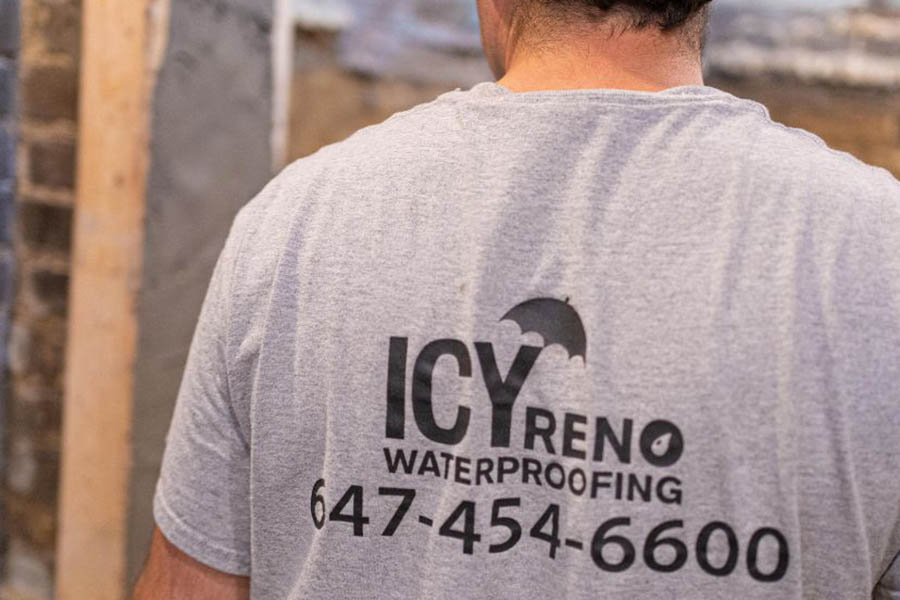The Hidden Dangers of Mold in Your GTA Basement
Basements are a big part of many homes within the GTA, giving homeowners a world of extra space that will be used for living, storing extra items, or even playing rooms. But they’re also prone to moisture and dampness-the perfect conditions for mold to thrive. Mold growth in your home is so much more than an aesthetic problem if your basement sealing is missing. It’s a severe threat to indoor air quality and your family’s health. Understanding how mold grows and spreads through the air within your home is key to the prevention of serious health risks down the road. Basement waterproofing solutions like exterior waterproofing and interior waterproofing systems can play a vital role in keeping your basement dry.
Why Mold Grows in GTA Basements
Another great contributor to basement moisture is the weather in Toronto. Freezing winters, heavy spring rainfall, and humid summers make it so that water seeps into the ground and eventually into the basement walls. The majority of GTA homes, especially the older ones, are more prone to this because of their cracked foundations, unsuitable waterproofing, and badly designed draining systems.
Sources through which moisture enters:
- Cracked foundation: Water can seep in through minute cracks and agitate mold growth.
- Poor Ventilation: The lack of adequate air circulation within confines enables trapped moisture to help raise humidity levels.
- Flooding and Leaks: Light flooding in the basement gives mold an ideal opportunity to thrive.
Homes that are not properly waterproofed, or that lack sump pumps or drainage systems, tend to suffer from long-term issues with accumulation brought on by water that gives mold spores the ideal opportunity to germinate and spread.

How to Identify Mold in Your Basement
Because mold is sneaky, it usually grows first in hidden or inaccessible areas, and the signs of mold damage might only appear long afterward. It, however, reinforces the need for early detection in the prevention of mold growth.
Signs You Might Have Mold
- Musty Odor: Often, mold produces a very characteristic earthy smell. If you notice this type of smell hanging around your basement, then most likely mold is growing somewhere-even if you can’t see it yet.
- Visible Spots or Stains: Signs of mold growth on the walls, ceiling, or even on the floor may be in black, green, or white spots. If you notice discoloration or some fuzzy patch, then that’s already mold growing.
- Increased Humidity: If you feel the basement is more humid compared to other parts of your house, then there might be mold growing because of the excess moisture.
- Health Symptoms: Do you have unexplained respiratory problems such as coughing, sneezing, or increased asthma? There may be mold spores floating in the air that you are breathing, and it may be affecting your health.
Regular checks of your basement for these signs will help you find mold problems early, while they are still small and more manageable.
The Impact of Mold on Indoor Air Quality and Health
How Mold Spores Spread Through the Air
The mold does not stay alone in your basement. While growing, it shoots out tiny spores that flow with air, passing through your HVAC system and settling on all surfaces around the home. In colder climates like, say, Toronto for instance homeowners would be likely to keep their windows shut during winter, trapping mold spores inside, and spiking indoor air pollution.
Health Risks Associated with Mold Exposure if Basement Sealing is Missing
People can be affected differently by mold. However, the following groups are more vulnerable to health effects because of mold:
- Respiratory problems: Cough, sneeze, and irritation of the throat might occur due to mold exposure. Symptoms may worsen further in people who suffer from asthma or allergies.
- Allergic reactions: The spores from mold have the potential to cause allergic reactions in sensitive individuals, including red eyes, skin irritation, and even sinus infections. Serious lung infections: These would be most likely to affect those whose resistance is very low, including the elderly or anyone receiving treatments for chronic diseases.
Basement mold growth and its enhancement of indoor air quality is an important aspect of a healthy living environment, especially for homes with small children, senior citizens, and those who have asthma and other types of respiratory ailments.

Long-Term Consequences of Unchecked Mold Growth
In addition to health risks, mold can also cause significant structural damage in your home. The longer mold is allowed to grow unchecked, the deeper it spreads through walling, flooring, and other materials. This further weakens the structural integrity of your house, so that any after-the-fact repairs may be even more expensive.
Structural Damage
- Rotted Wood: Mold can rot the wood beams and structure so that the foundation of your home weakens.
- Drywall damage: Once mold has seeped into drywall, it can never fully be removed. Affected areas often have to be completely replaced.
- Foundational cracks: Ongoing moisture can cause your foundational cracks to worsen, leaving your home open to flooding and further mold issues.
How to Keep Mold out of Your Basement by Basement Sealing
The best way to eradicate mold is before it ever begins! Both for indoor air quality and structural integrity in your house. While DIY solutions may be helpful to you in managing moisture, basement sealing professional help will help extensively.
Effective Mold Prevention Methods
- Waterproofing: The best way to avoid mold in the first place is not to let water into your basement. Proper basement sealing by installing sump pumps and drainage systems-along with sealing foundation cracks, keeps moisture out.
- Improve Ventilation: Permit proper aeration in your house by installing an exhaust fan in the moist areas of the home, basement, kitchen, and bathroom. Ventilation keeps the humidity level in a balanced state so mold will not have ample opportunity to grow.
- Regular Checks: Even when you are not observing visible mold, periodic checks will be necessary, especially if moisture issues occur more frequently in your home. Professional mold inspections help find out probable problems before they become grave.
When to Call in the Experts for Basement Sealing
Sometimes, mold growth requires professional assistance to tackle properly. When mold repeatedly reappears after cleaning with DIY methods it is time to call in the professionals for basement waterproofing and mold remediation.
Professional Solutions Include:
- Crack Injection: Cracks in the foundation are sealed so as not to allow water to seep into your basement.
- Interior and Exterior Waterproofing: Comprehensive waterproofing systems cover the issues of the superficial level of water.
- Mold Remediation: Ensuring safety and removal of the already existing mold colonies and assuring that no future mold growth shall be allowed.
Don’t Let Mold Compromise Your Home’s Air Quality
Mold in your basement is much more than just an eyesore-it’s a serious health hazard. Dealing with moisture issues and investing in professional waterproofing will save your home and protect your family’s health.
Take the first step today to mold prevention, assuring a healthy and clean living environment. If you suspect mold in your basement or would like to take preventative measures for potential mold growth, contact IcyReno local Toronto basement waterproofing expert today for a comprehensive solution that will cater specifically to the needs of your home.


